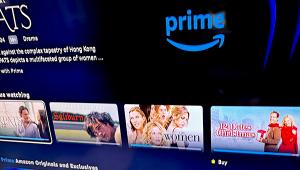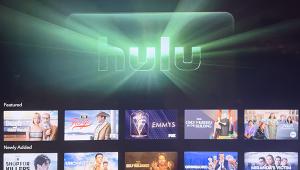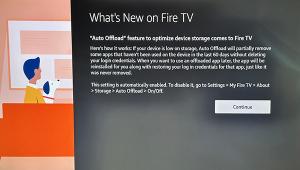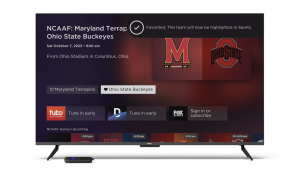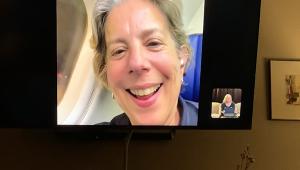Dish Chairman: We're Not Trying to Destroy TV Networks With Our Commercial Skipping DVR

AutoHop has been criticized (and taken to court by every major TV network) for trying to destroy commercial TV's money stream by automatically skipping ads in primetime TV show recordings. Ergen explained that it is not his intention to remove the commercials and that is not legal to alter TV broadcasts. Instead, the technology that allows for skipping commercials could be used to create targeted ads similar to those on many of Hulu's streaming videos. On some streaming TV shows, Hulu offers viewers a choice of commercials so that they see products and services that they are more likely to actually purchase.
Because targeted ads are more effective and result in more sales, in theory, networks could charge more for commercial time. What's more, skipping commercials has been available since the DVR was born. The commercials are still there and will be seen if the viewer rewinds. Still, he states that if consumers have to watch ads, they want the ads to be relevant. Networks would rather fight than switch. Ergen warns that if any network wins in court, it could also outlaw DVR features that allow us to fast forward through commercials.
Another topic Ergen discussed was why he was trying to acquire wireless spectrum. Recently, Dish tried to buy Clearwire with its 4G LTE spectrum, but was beat to the punch by Sprint. This was not motivated by the desire to go into the mobile phone business. Instead, Ergen talked about how buying wireless spectrum would be an extension of the Dish Anywhere experience.
Dish Anywhere is a unique because of the use of Sling technology in the Hopper. With Sling, Dish can offer customers true on-the-go access to their Dish satellite service including watching the recordings on their DVR. Dish offers Hopper DVRs with integrated Sling technology, and satellite Internet service, controlling two aspects of streaming outside the home. Ergen explained that buying the wireless spectrum would enable Dish to control delivery of streaming video to mobile devices. In fact, he would want to configure the spectrum for video transmission rather than the voice-centric way most wireless cellphone networks are set up. It is unlikely that Dish will succeed in picking up the wireless spectrum, but Egren will push forward.
Change is necessary if the satellite and cable providers want to survive as the next generation become adults. Egren talked about going into a college dorm where, although there was a connection for cable TV in each room, he did not see a single TV that was connected. He talked of how the college-age generation consumes most of their TV and entertainment by streaming from online. Groups of kids will get together to share a Netflix subscription. Egren doesn't agree with other cable companies' belief that these kids will change their viewing habits when they settle down and have families. He suggested that the companies will have to hook them while the kids are young similar to the way tobacco companies used to give away cigarettes on college campuses, (and yes, that was Egren's analogy).
There is much more to the interview which is available in the AllThingsD website. Dish Network seems to be poised to stay alive in the future world of streaming video and is not afraid of change or ruffling a few feathers along the way.
- Log in or register to post comments




